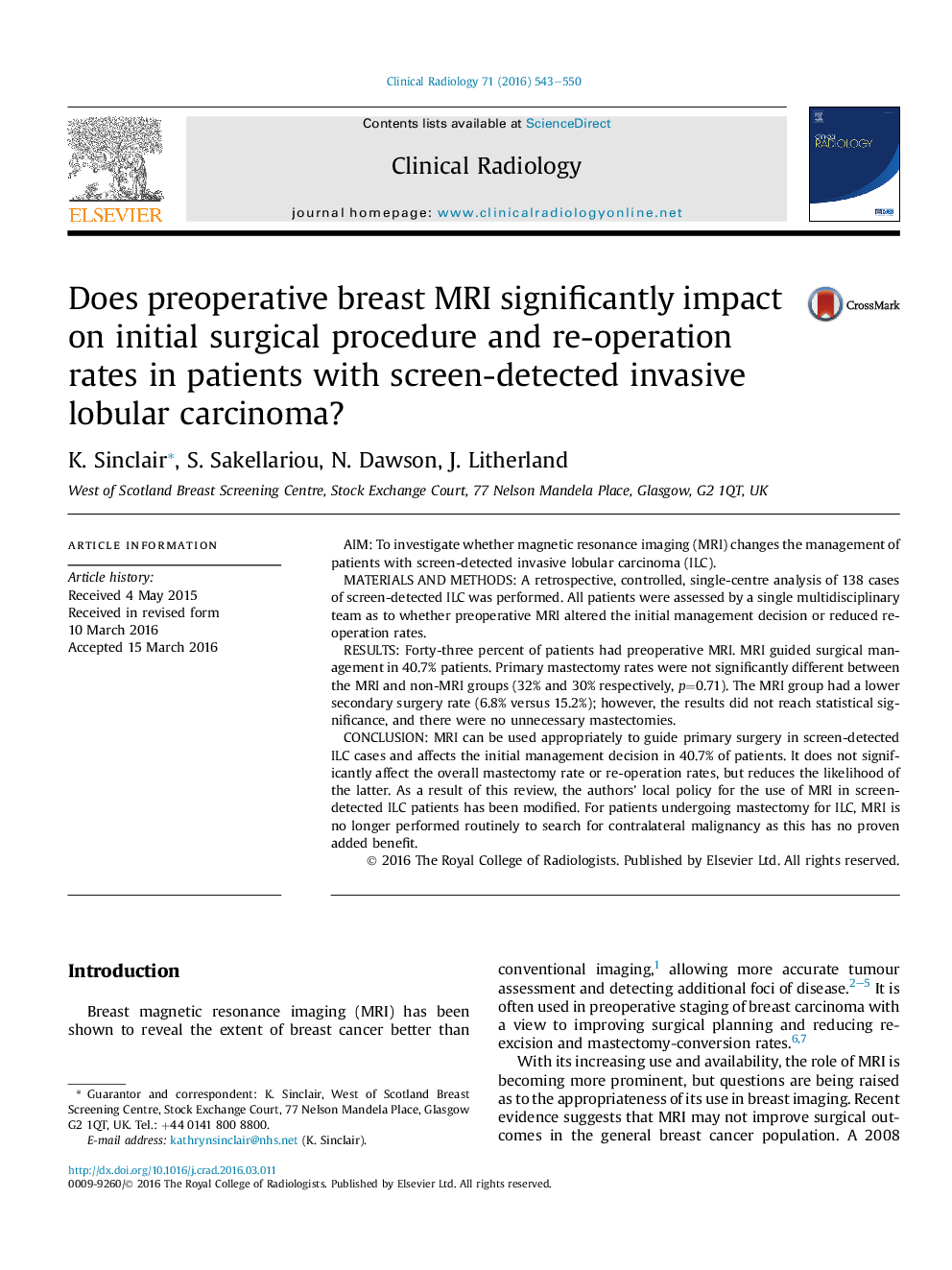| Article ID | Journal | Published Year | Pages | File Type |
|---|---|---|---|---|
| 3981323 | Clinical Radiology | 2016 | 8 Pages |
•Breast magnetic resonance imaging (MRI) allows more accurate tumour assessment and detects additional foci of disease in invasive lobular carcinoma (ILC).•Over the study's 3 year time frame, MRI guided surgical management of 40.7% screen-detected ILC patients scanned.•No statistically significant difference in mastectomy rates between MRI and non MRI groups.•Observed lower re-operation rate (6.8%-v-15.2%) in MRI group not statistically significant.•No MRI benefit for contralateral disease detection in ILC patients for mastectomy.
AimTo investigate whether magnetic resonance imaging (MRI) changes the management of patients with screen-detected invasive lobular carcinoma (ILC).Materials and methodsA retrospective, controlled, single-centre analysis of 138 cases of screen-detected ILC was performed. All patients were assessed by a single multidisciplinary team as to whether preoperative MRI altered the initial management decision or reduced re-operation rates.ResultsForty-three percent of patients had preoperative MRI. MRI guided surgical management in 40.7% patients. Primary mastectomy rates were not significantly different between the MRI and non-MRI groups (32% and 30% respectively, p=0.71). The MRI group had a lower secondary surgery rate (6.8% versus 15.2%); however, the results did not reach statistical significance, and there were no unnecessary mastectomies.ConclusionMRI can be used appropriately to guide primary surgery in screen-detected ILC cases and affects the initial management decision in 40.7% of patients. It does not significantly affect the overall mastectomy rate or re-operation rates, but reduces the likelihood of the latter. As a result of this review, the authors' local policy for the use of MRI in screen-detected ILC patients has been modified. For patients undergoing mastectomy for ILC, MRI is no longer performed routinely to search for contralateral malignancy as this has no proven added benefit.
